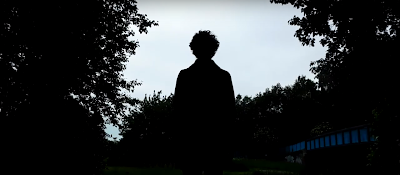Ashore
Ashore - Moments of Silence, Moments of Noise
Our lives are made up of two types of moments: moments of noise - when we are with family an friends - and moments of silence - when we are with our inner selves. In Ashore we are invited to analyze this in the life of a common fisherman. With a humanistic eye, Leonor Teles shows us a glimpse of this man's and his family's life. This film is a portrait of a fisherman and the family that brings him ashore. This film is a portrait of the division between life in solitude and life in coexistence.
In this documentary, we follow Albertino Lobo, a fisherman who lives in Vila Franca de Xira, a town near Lisbon. We follow his routine as he goes fishing in the river Tagus as well as his family life. For one hour and twenty minutes, we are voyeuristic guests in this man's life. We see him as he looks into the distance in his fishing boat, and we hear the conversations around the dinner table. Leonor Teles brilliantly places the camera in a position that creates in us the illusion that we are really there, seating at the table of the Lobo family or in the boat with Albertino. This is a study of an incredibly interesting character that is hard not to be captivated by: a quiet man with a deep expression, with a face that gives an impression of constant reflection, eyes and a face that reveal knowledge and the history of an experienced life.
What probably is the most central aspect of this study of everyday life is the divide between the moments of silence and moments of noise. This is done in such a contrasting way that it' difficult to ignore it. The interesting thing is that they seem almost belonging to two different dimensions. While the "moments of noise" have a progression and storyline, the "moments of silence" seem almost unchanged and eternal, almost as if they could extend always in the same way to eternity. No matter what happens in his family life, the next morning he goes back to work, in his usual routine. The structure of this documentary is done in such a way that these "moments of silence" become moments of reflection and pause where we can rest our minds and maybe reflect on what we saw and what was said, the same that probably Albertino is doing.
In this film, the banal and the mundane become interesting subjects. Albertino's wife cooking becomes one of the most compelling actions in the history of humanity - every movement, the sound of the sizzling oil, the small talk about the problems of the day - it becomes the poetry of the mundane. There is even a certain humor in every situation. Leonor Teles has such a unique and peculiar way of capturing the humor in the little things in life - watching Albertino's wife trying to use her new 500€ vacuum cleaner becomes one of the most comical situations ever filmed, and the spontaneity of the conversations around the dinner table makes them funnier than most comedies ever written. There is a playfulness and a light-heartedness in her directing style, which makes this documentary all the more unique - it captivates our attention to all the small details of life, showing a side that, otherwise, we wouldn't have noticed.
This is an incredible and moving achievement by one of the most promising young Portuguese filmmakers right now. It is a unique view of the life of the working-class. It has a moving intimacy that tears down walls and yet respects privacy. It's about the two lives that we all have, moving us all closer together, showing that we are all equally human, no matter the background. We all have our moments of silence and our moments of noise. It's what makes up our lives. And this amazing documentation of life captures this perfectly.




Comments
Post a Comment